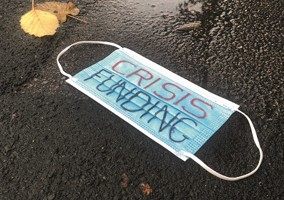Over the last few years, the environmental, social and governance (ESG) responsible investing environment has seen rapid change. And as 2023 gathers pace this year is proving to be no different. “It is exciting because responsible investment is constantly moving forward,” says Ian Chesham, Director of the Charities Team at Barclays Private Bank. “There’s always new solutions. It is such a positive area and it has a lot of momentum.”
This year, Chesham says that he is seeing an increased focus on optimising cash balances. “And that means looking at things such as fixed-income portfolios. The challenge and consideration for trustees whether their bond portfolios align to ESG and responsible and sustainable values. Trustees are now grappling on how to decide which products and solutions meet the same ESG criteria that they were used to seeing in the equity market. In reality, there isn’t quite as many, but there are more than there used to be.”
Understanding ESG
Decisions such as these are much better informed, says Chesham, because trustee understanding of ESG investment has greatly improved over recent years. “Four or five years ago, the level of knowledge around ESG among trustees at charities around the UK was minimal,” recalls Chesham. “But we have seen trustees taking the time to learn about responsible investing and understand it. Everyone’s much better informed.”
Despite the recent macro and micro economic challenges, Chesham doesn’t think enthusiasm among charities to stick to a responsible investment strategy has waned. “I think charities’ focus may have moved away from investments generally, because they’ve got to prioritise – their resources are being depleted and the need for their services has increased so the focus has been on daily challenges. But the desire to have responsible and sustainable investments has continued.”
As part of the trustees becoming better informed and understanding ESG in more detail, they have realised that ESG solutions don’t necessarily mean a reduction of returns; in fact they can enhance returns. “The evidence of the last few years has been that ESG strategies – sustainable and responsible strategies – despite a difficult year last year, have outperformed as a whole.
“It would be easy to slip back and want to invest in fossil fuel companies because they have done really well this year. But we are thinking five to 10 years ahead. The outlook is not so rosy for these types of companies because they are going to have to completely transform their businesses and there’s a big question mark about whether they can do that. I prefer a company with a future. I think our charity clients understand that.”
Evidencing impact
To further understanding, Barclays publishes an annual sustainability report on the Barclays Private Bank website (new report out in April 2023), which gives charities the evidence of what companies have done to meet UN sustainable development goals.
“Charities can use this to articulate how their investments are having a positive impact, not only a financial one,” continues Chesham. “They can show how they use investments, not just to support grantmaking or increase income, but to reflect the whole ethos of the charity. People are realising that the synergy of investments and the messaging and the charity all come together in a really positive way. I think charities are getting wiser in how they can use these portfolios to message what they’re doing for the world. So when they are making climate emergency statements, they are using portfolios as evidence to show action they have taken.”
For Barclays, this means giving them the evidence to show their stakeholders. Data is a key element to this, especially when it comes to decarbonisation and aligning with the Paris Agreement, adds Chesham. “Data allows you to analyse more about the companies that you have, their impact and their ability to demonstrate that they are Paris aligned; not just to look at the historic emissions of a company, but try to look at the implied temperature rise of the companies in the future based on what they are currently doing and the planned reduction of emissions.”
Chesham says that trustees are becoming more questioning about issues such as greenwashing, and that’s a good thing. “The key is transparency and being clear in terms of what our client is invested in. The majority of our portfolios are segregated, so you can see the underlying holdings. We have a robust approach to ethical screening, clear and precise monitoring and ESG analysis that goes alongside that. You have to demonstrate that you are doing what you say you are doing. When we created the sustainable strategies, we always wanted to make sure that everything that we do could be evidenced.”
Navigating uncertainty
Chesham believes there are opportunities to stabilise income. “Interest rates have completely transformed the fixed-income asset class. According to Barclays Private Bank Fixed Income Research February 2023, the yields within the UK investment grade market are over 5%, which if you can lock in for the next couple of years is quite compelling. It’s behind inflation but that may be back within the 2% range by 2025-26.”
Chesham admits however that there is no escaping the fact that charities need to play a smart investment game to navigate the current climate. “Some charities are depleting their reserves because they need to. But most charities are looking at their reserves and asking us how we can help them do more with it. They have to be wise with their choices and have absolute confidence in their asset manager’s ability to help them.”
Ian Chesham is director of the charities team at Barclays Private Bank
Fast facts
Over 65 years’ experience working with charities across the UK
Barclays Private Bank manages in excess of £120bn in client assets
Barclays group target is to facilitate $1trn of sustainable and transition financing by end of 2030
What we do
Barclays Private Bank offers investment to charities and not-for-profits. Our team of dedicated sector specialists work with you to understand your requirements and create bespoke solutions that help meet your financial objectives in line with your organisations’ values. Our services include: discretionary portfolio management, with direct access to your portfolio manager; treasury and short-term cash management; liability matching investment strategies; credit facilities; and access to private asset opportunities.













